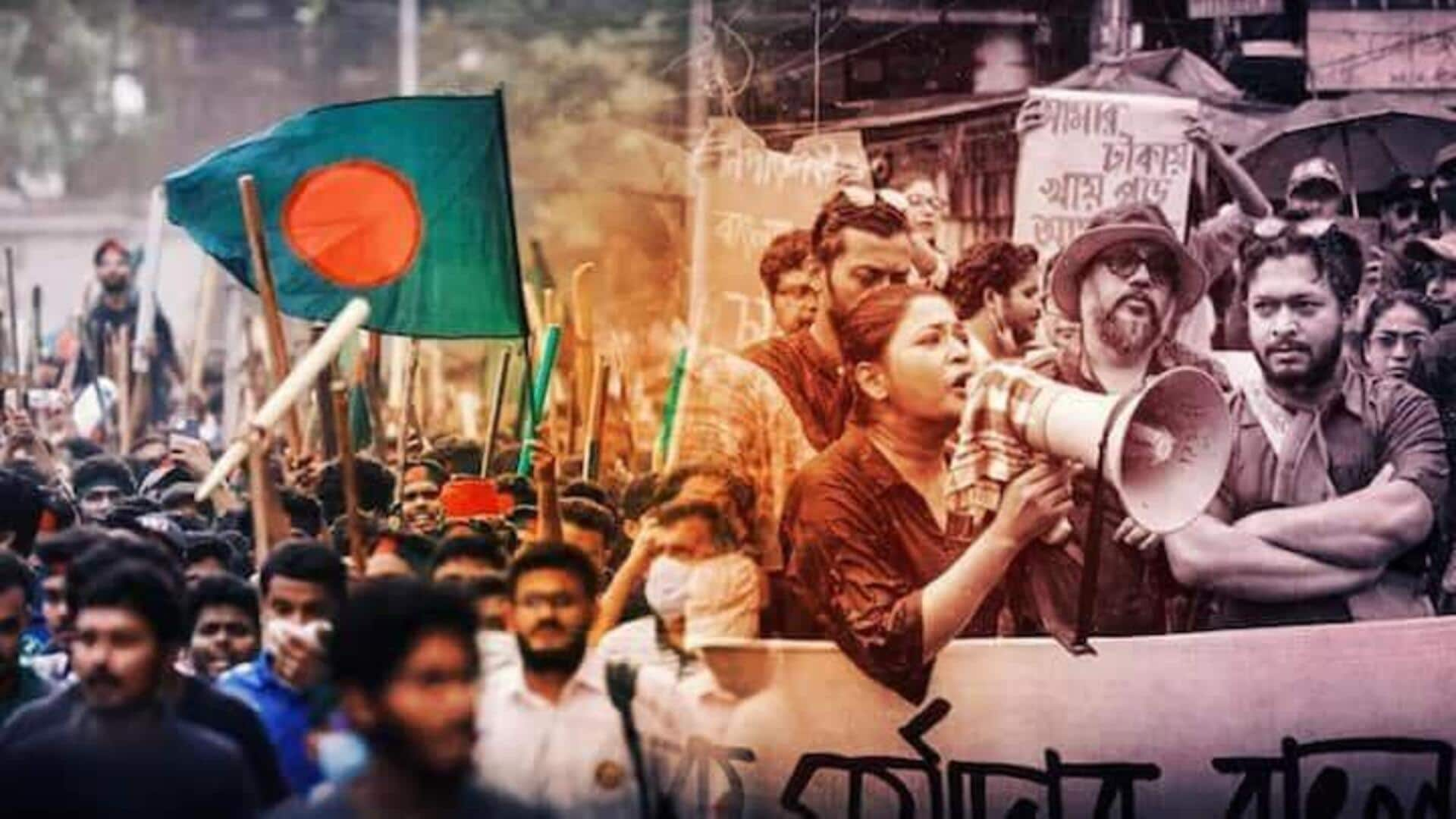
What's Jamaat-e-Islami, the Islamist party that fueled Bangladesh's political crisis
What's the story
Bangladesh is presently on the cusp of a significant political crisis as an interim government led by Nobel Peace Prize-winning economist Muhammad Yunus takes over on Thursday. This change was brought about by the resignation of Prime Minister Sheikh Hasina following violent protests against her Awami League government over a government job quota scheme. One of the driving forces behind the protests, reports say, is the Islamist party Jamaat-e-Islami, which is reportedly backed by Pakistan's Inter-Services Intelligence (ISI).
Party history
Origins and evolution of Jamaat-e-Islami
Bangladesh Jamaat-e-Islami was established in 1975, originating from a traditional Islamic movement in what was then East Pakistan. Its founder, Sayyid Abul A'la Maududi, who had ties to the Muslim Brotherhood, defined its mission as the creation of an Islamic state. The term Jamaat-e-Islami translates to "Islamic congregation," and the group has consistently advocated for global Islamic rule.
Political alliances
Jamaat-e-Islami's political journey
Jamaat-e-Islami evolved into Bangladesh's largest Islamic political party over the years, recognized for its partnership with the Bangladesh Nationalist Party (BNP) led by Khaleda Zia. However, its political involvement was restricted in 2013 when the Bangladesh government prohibited it from running in elections due to its constitution's rejection of secularism, a fundamental principle of the national constitution.
War involvement
Controversial history
Its Pakistani successor, also called Jamaat-e-Islami, was founded in 1941 by a controversial Islamist scholar and campaigned against Bangladesh's independence from Pakistan during the 1971 war. Jamaat members established auxiliary forces such as Razakars, Al-Badr, Al-Shams, and the Peace Committee, which were involved in atrocities against Bengali freedom fighters and the Hindu community. These actions led to the party's initial ban by Sheikh Mujibur Rahman, the founding father of Bangladesh.
Party resurgence
Jamaat-e-Islami's re-emergence and fall
Despite the ban, Jamaat-e-Islami retained a significant role in Bangladesh's political scene. Following the assassination of Rahman and a subsequent military coup in 1975, the ban was lifted, and the party re-emerged as Jamaat-e-Islami Bangladesh. It sought to establish an "Islamic state" governed by Sharia law. The party's decline began with the War Crimes Tribunal initiated by the Awami League government in 2008.
Recent unrest
Jamaat-e-Islami's role in recent political unrest
Several prominent Jamaat officials who were involved in the Pakistani Army in the 1971 Liberation War were found guilty of war crimes. The International Crimes Tribunal accused numerous Jamaat leaders of crimes against humanity. Delwar Hossain Sayeedi, Jamaat's deputy head, has been sentenced to death for genocide, rape, and religious persecution. In June 2023, the party briefly came back to the fore in Bangladeshi politics when it led a huge rally in Dhaka.